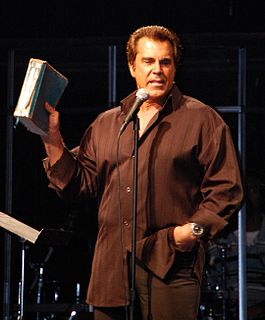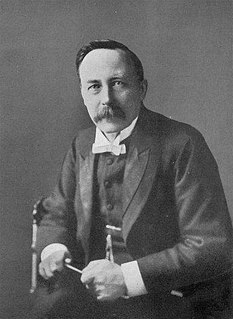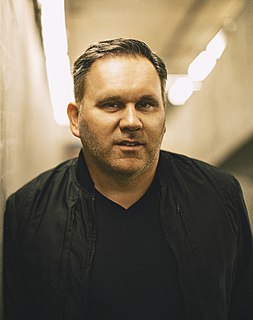A Quote by Joel Beeke
In essence, sin is all that is in opposition to God. Sin defies God; it violates His character, His law, and His covenant. It fails, as Martin Luther put it, to 'let God be God.' Sin aims to dethrone God and strives to place someone or something else upon His rightful throne.
Related Quotes
Wrath, unlike love, is not one of the intrinsic perfections of God. Rather, it is a function of God's holiness against sin. Where there is no sin, there is no wrath-but there will always be love in God. Where God in His holiness confronts His image-bearers in their rebellion, there must be wrath, or God is not the jealous God He claims to be, and His holiness is impugned. The price of diluting God's wrath is diminishing God's holiness.
What is sin? It is the glory of God not honored. The holiness of God not reverenced. The greatness of God not admired. The power of God not praised. The truth of God not sought. The wisdom of God not esteemed. The beauty of God not treasured. The goodness of God not savored. The faithfulness of God not trusted. The commandments of God not obeyed. The justice of God not respected. The wrath of God not feared. The grace of God not cherished. The presence of God not prized. The person of God not loved. That is sin.
God has decided the rules of life, whereby you don't trespass on anybody else's rights, and sin is something that upsets the balance of things. There are three types of sin: sin against yourself; sin against other people; and sin against God. People often sin against themselves and others and misbehave with God, too.
For worship is, essentially, the reverse of sin. Sin began (and begins) when we succumb to the temptation, "You shall be as gods." We make ourselves the center of the universe and dethrone God. By contrast, worship is giving God his true worth; it is acknowledging Him to be the Lord of all things, and the Lord of everything in our lives. He is, indeed, the Most High God!
Faith stands or falls on the truth that the future with God is more satisfying than the one promised by sin. Where this truth is embraced and God is cherished above all, the power of sin is broken. The power of sin is the power of deceit. Sin has power through promising a false future. In temptation sin comes to us and says: "The future with God on his narrow way is hard and unhappy, but the way I promise is pleasant and satisfying." The power of sin is in the power of this lie.
God's righteousness and His unchangeable law make Christianity a stumbling block for many. Organizations and individuals carry a political and moral agenda that aims to remove all obstacles to their sin. Their goal is to 'break God's bands asunder and cast away His cords.' They counsel together to rid themselves of the law of God; anyone who preaches the gospel or stands for righteousness stands in the way of their agenda.
Those who understand the cross increasingly see their sin as God does, and therefore begin to feelabout sin as does God. We begin to mourn for and hate it. In other words, at the cross God becomes larger and we become smaller. This separation is at the heart of the fear of God. This "fear" opens God's wisdom to us because only in light of God's immensity can I see the importance of living for the right end, his glory. And only in the light of my smallness can I feel overawed by the means he used to save me, his cross.
God reveals to His prophets that there are moral absolutes. Sin will always be sin. Disobedience to the Lord’s commandments will always deprive us of His blessings. The world changes constantly and dramatically, but God, His commandments, and promised blessings do not change. They are immutable and unchanging.
I love to say that not only is the throne room of God a place of reverence, it's always a place of refuge. So when everything else in life seems to be shifting, or breaking and shaking apart, there's a place that is always stable, safe, and constant. When we draw near to God in worship, and approach His throne, we tap into that. It's a very re-assuring place, where we're reminded that there's a God on His throne, and even when we don't understand everything, we can trust it to Him.
































